Publications
Articles, publications, books, tools and multimedia features from the U.S. Institute of Peace provide the latest news, analysis, research findings, practitioner guides and reports, all related to the conflict zones and issues that are at the center of the Institute’s work to prevent and reduce violent conflict.
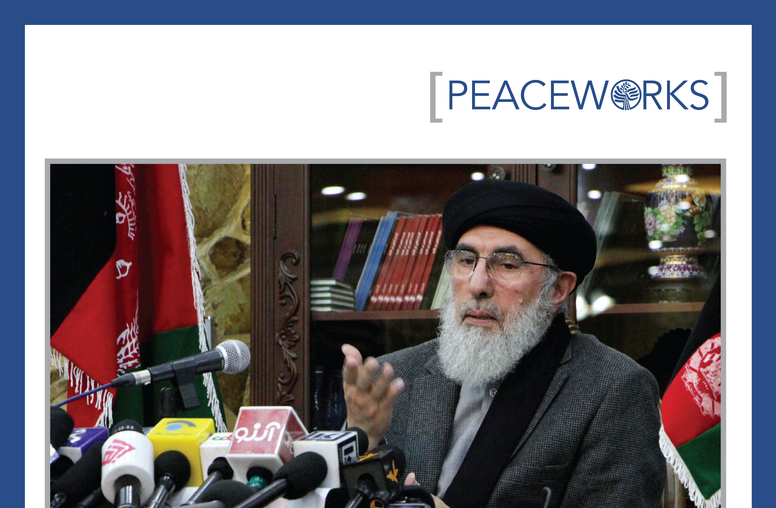
Hezb-e Islami, Peace, and Integration into the Afghan Security Forces
With an eye to an eventual end to the Afghan insurgency, this report examines the struggle within Afghanistan’s National Unity Government over the country’s security sector and the related impact on the recruitment of Hezb-e Islami commanders and fighters in the security forces as agreed to under a 2016 peace deal.
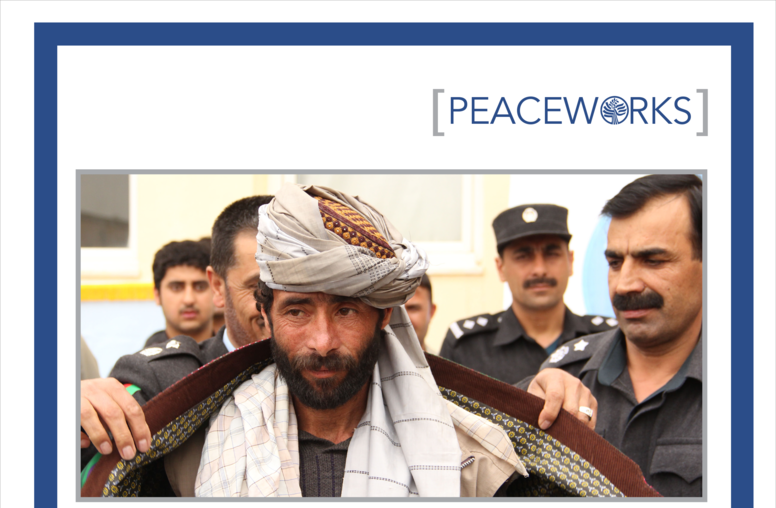
A Negotiated End to the Afghan Conflict
Despite widespread recognition that the only way toward ending the Taliban insurgency in Afghanistan is a negotiated settlement, understanding of the Taliban’s thinking on the subject is remarkably scant. This report attempts to fill this gap by drawing on face-to-face interviews with Taliban foot soldiers, field commanders, and supporters to better understand the movement’s views on why they are fighting, what issues are negotiable, whether they have faith in negotiation as a way to peace, and what a peace process might look like.
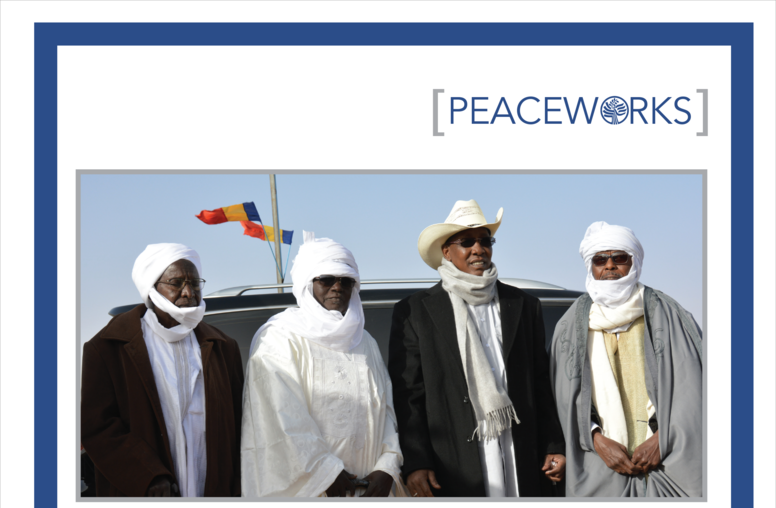
Déby’s Chad
Since gaining its independence from France in 1960, Chad has evolved from a one-party state into a multiparty regime, endured successive rebellions, and become an interventionist regional actor. Thanks to both an oil boom and corruption, segments of the Chadian elite have become very rich, but most of the population is...
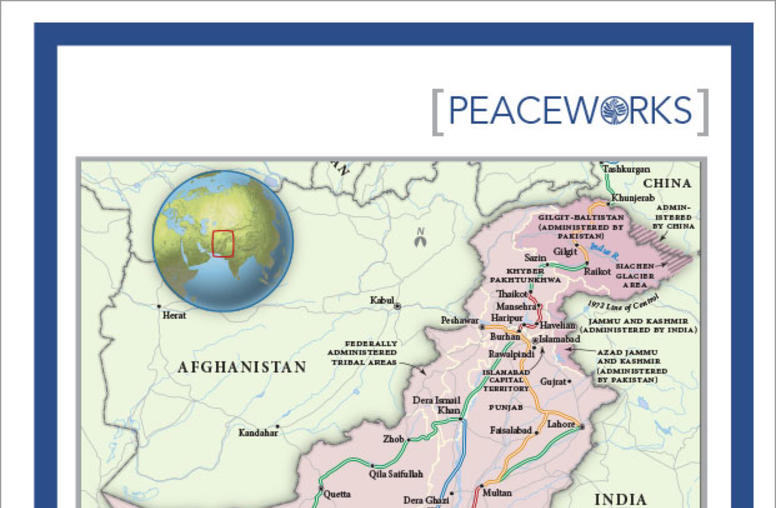
The China-Pakistan Economic Corridor
The China-Pakistan Economic Corridor (CPEC)—which connects China’s western province of Xinjiang to the Pakistan’s Arabian Sea coastline in Balochistan province—is the first large-scale attempt to bolster economic ties between Beijing and Islamabad, after decades of...
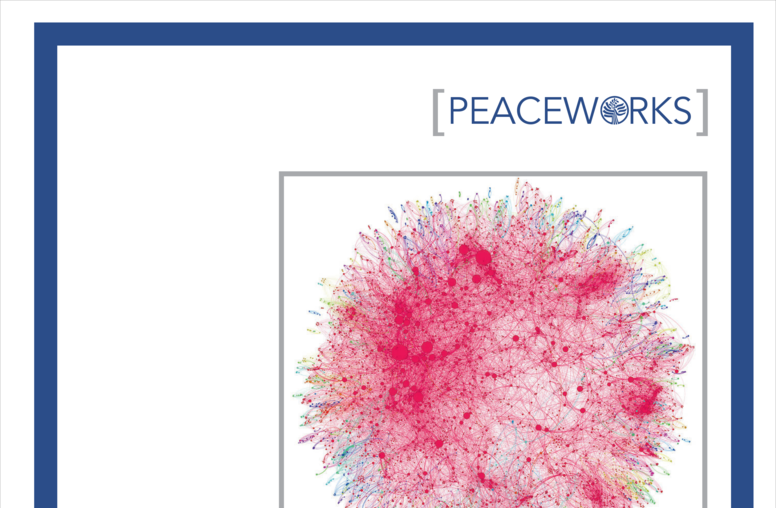
Systems Thinking for Peacebuilding and Rule of Law
Many peacebuilding interventions seeking to support rule of law get stuck. The reason they get stuck may have little to do with the law and its technical dimensions and more with a tendency to treat certain rule of law systems as if they were...

Systems Thinking for Peacebuilding and Rule of Law (Arabic)
إن نهجنا التقليدي المتبع في بناء السلام وعملية إصلاح سيادة القانون يبدو جيدًا؛ حيث الأهداف الطموحة، وضخ الموارد، وفرق الخبراء الذين يعملون بشكل مكثف. ومع ذلك، يبدو أننا نادرًا ما ننجح في خلق إصلاحات ناجحة ومستدامة حقًّا. لماذا نتعثر؟ تكمن إحدى الإجابات المحتملة في كيفية النظر إلى الأنظمة التي نعمل بها؛ لأننا نميل إلى معالجة العديد من نظم بناء السلام وسيادة القانون كما لو كانت أنظمة الساعة، وهي أنظمة منتظمة ويمكن التنبؤ بها بشكل كبير. وفي الواقع، فإن البيئات التي نعمل بها أشبه بأنظمة السحب من حيث إنها غير منتظمة، وغير منظمة، وغير متوقعة. واستنادًا إلى مجال التفكير المنظومي، يدعو هذا التقرير ممارسي بناء السلام إلى استخدام أكثر من منظور عند دراسة الأنظمة والمشاكل التي يواجهونها. وفي بعض الأحيان، سنضطر إلى التعامل مع المشاكل من منظور تقني زمني. وفي أحيان أخرى، سنضطر إلى استخدام منظور أوسع يركز على تعقيد النظام الأكبر. وكثيرًا ما سنحتاج إلى استخدام كلا المنظورين في التعامل مع المكونات المختلفة لجهود الإصلاح في الوقت نفسه.
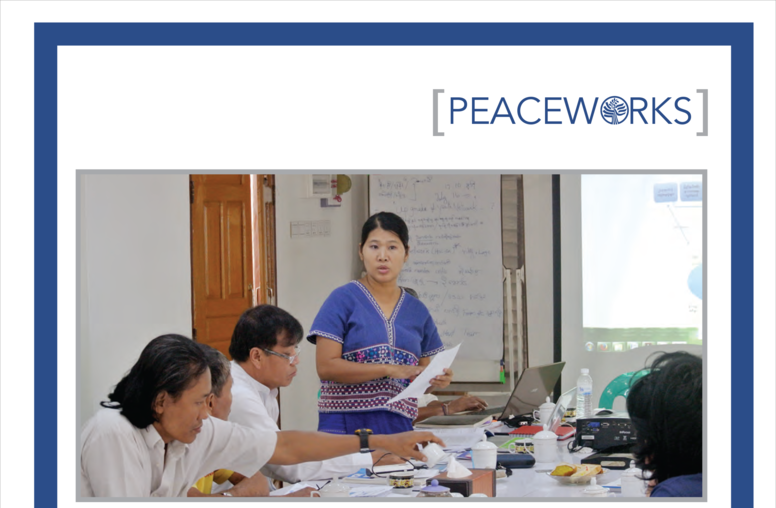
Nonformal Dialogues in National Peacemaking
Nonformal dialogues offer complementary approaches to formal dialogues in national peacemaking efforts in contexts of conflict. As exemplified by the nonformal dialogues in Myanmar, Lebanon, and Nepal examined in this report, nonformal dialogues are able to...
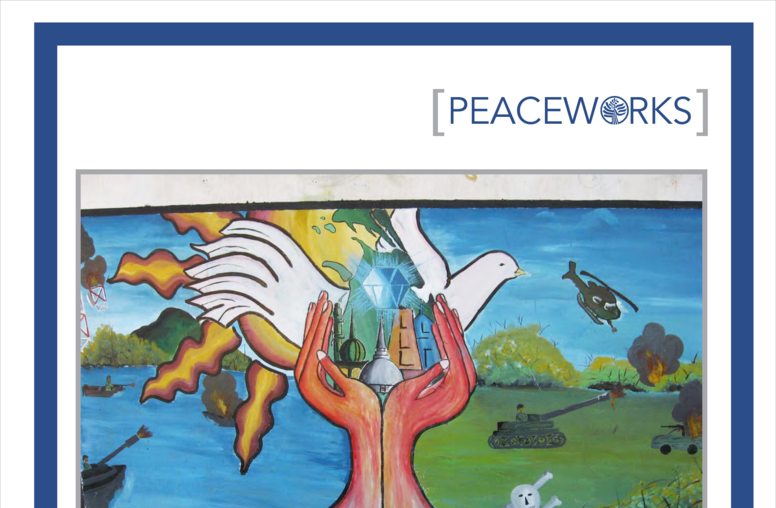
Does Reconciliation Prevent Future Atrocities?
What are atrocity crimes, why and when do they arise, and how can peacebuilding practice help to prevent them? This report delves into the conceptual foundations of reconciliation and atrocity prevention in the context of Sri Lanka’s history of conflict and ongoing reconciliation process, analyzing institutional-level reconciliation efforts and drawing from a randomized field experiment in an interpersonal reconciliation program. It suggests that by understanding the conditions under which reconciliation is most effective, peacebuilding practice will be better placed to achieve its goals after violent conflict.
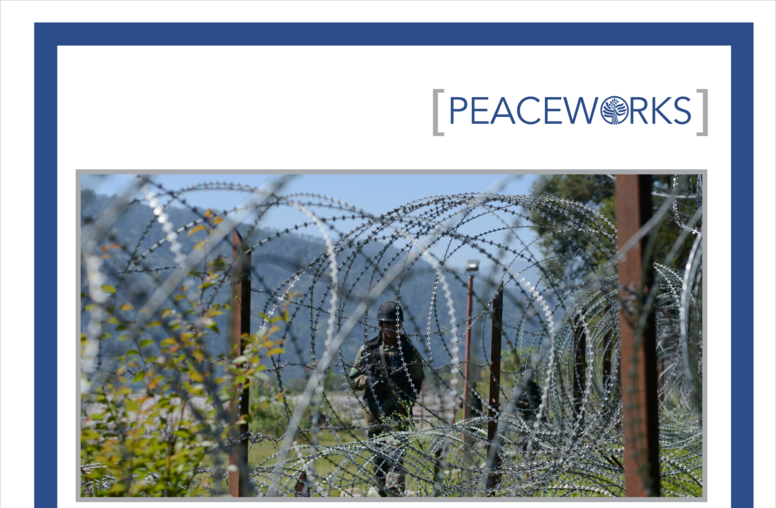
Ceasefire Violations in Jammu and Kashmir: A Line on Fire
Ceasefire violations on the border between Pakistan and India and across the Line of Control in the Jammu and Kashmir region are both a product of broader bilateral tensions and a contributor to them. Drawn on field research and extensive interviews with both Indian and Pakistani officials and senior military figures, this report argues that ceasefire violations are generally not planned, directed, or cleared by higher military commands or political establishments, but are driven by the dynamics on the frontlines. The report explains these factors in context, offering recommendations on what could be done to better manage or even avoid both tensions and escalation of conflict.
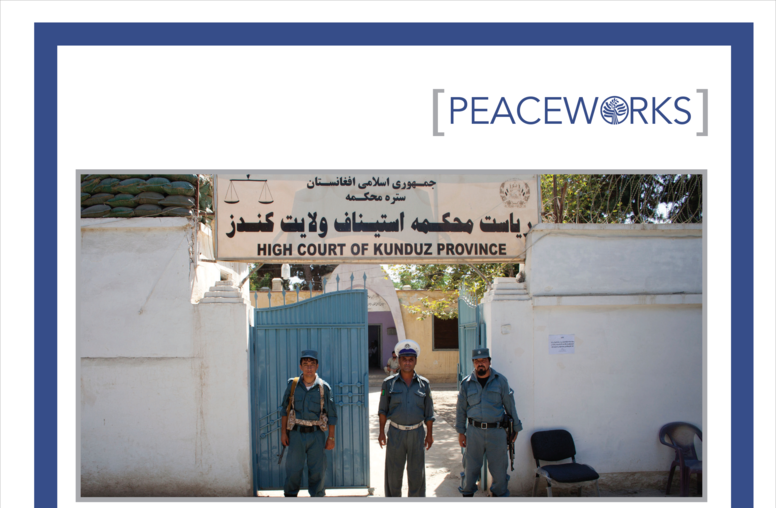
Rule of Law, Governance, and Human Rights in Afghanistan, 2002 to 2016
In the wake of the 2001 invasion, Afghanistan is a cautionary tale about underfunded, underplanned, and undercoordinated development agendas. Derived from extensive fieldwork, numerous interviews, and desk research into primary and secondary sources, this report examines the successes and failures in Afghan reconstruction over fifteen years to suggest ways to consolidate gains in rule of law, human rights, and good governance over the long term.